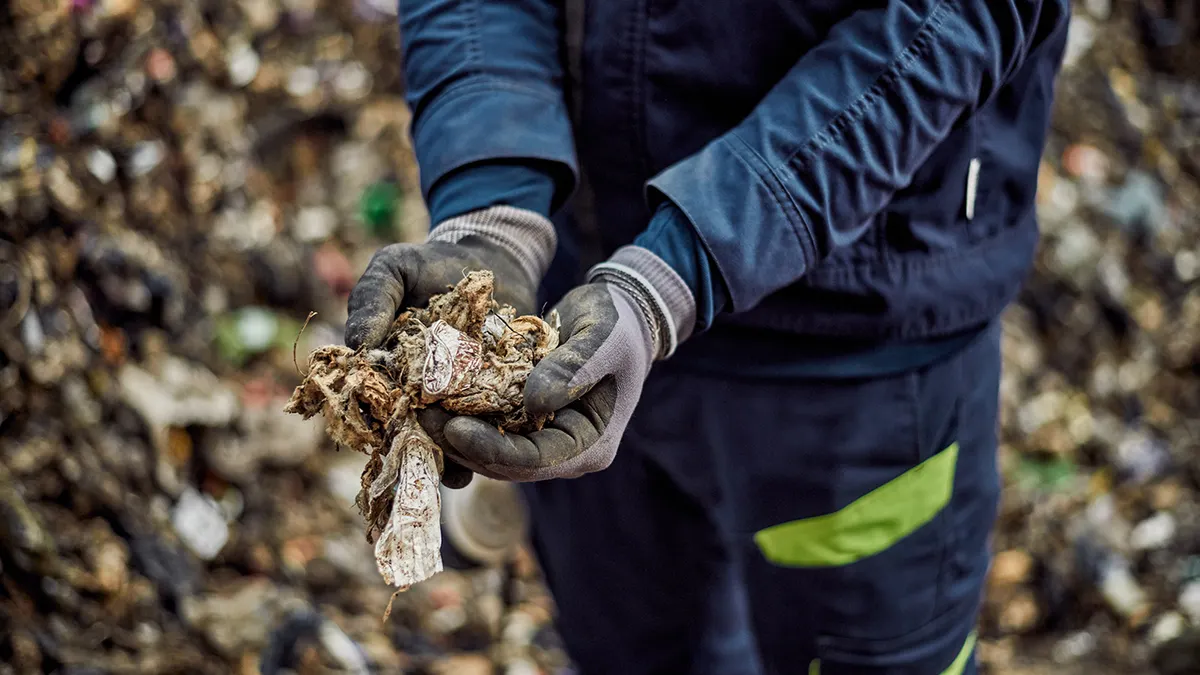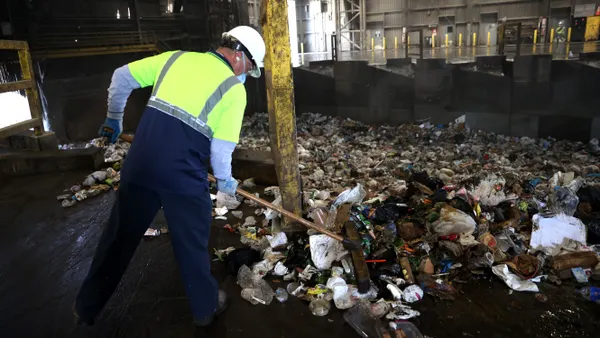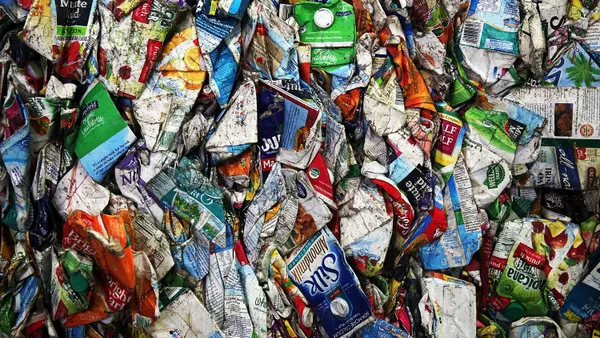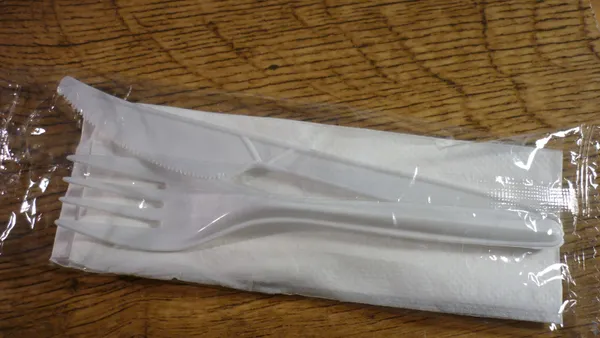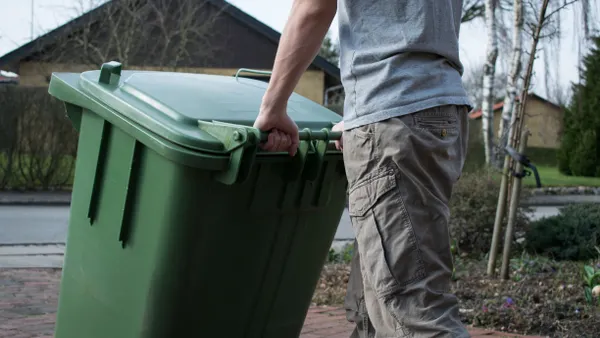Dive Brief:
- UBQ Materials, an Israel-based company that converts mixed waste into a thermoplastic composite, has partnered with Cascade Engineering and the Central Virginia Waste Management Authority to distribute 3,000 new trash carts made with its material.
- Virginia is the first U.S. state to use carts formulated with UBQ material, which the company describes as “a plastic alternative made entirely from household waste.” UBQ Materials markets its material as having about a 7.25% lower carbon footprint than some conventional plastics.
- The partnership marks UBQ Materials’ expansion into the U.S. market. The company is also working on opening two plants in the U.S. and is potentially eyeing Massachusetts as one location, said co-founder Jack Bigio, chief growth and sustainability officer, in an email. The company hopes to open one of the facilities in 2028.
Dive Insight:
UBQ Materials aims to serve a niche market by appealing to companies and partners looking to replace traditional plastics with either bio-based or postconsumer recycled materials. It describes the feedstock it uses for its plastic alternative as an “upcycled material” that typically comes directly from municipal solid waste and might otherwise be sent to landfills.
The company uses a patented process that removes metal and glass from mixed waste systems and uses heat to break down the remaining material — including organics — into elements that can become building blocks for plastic additives or replacements.
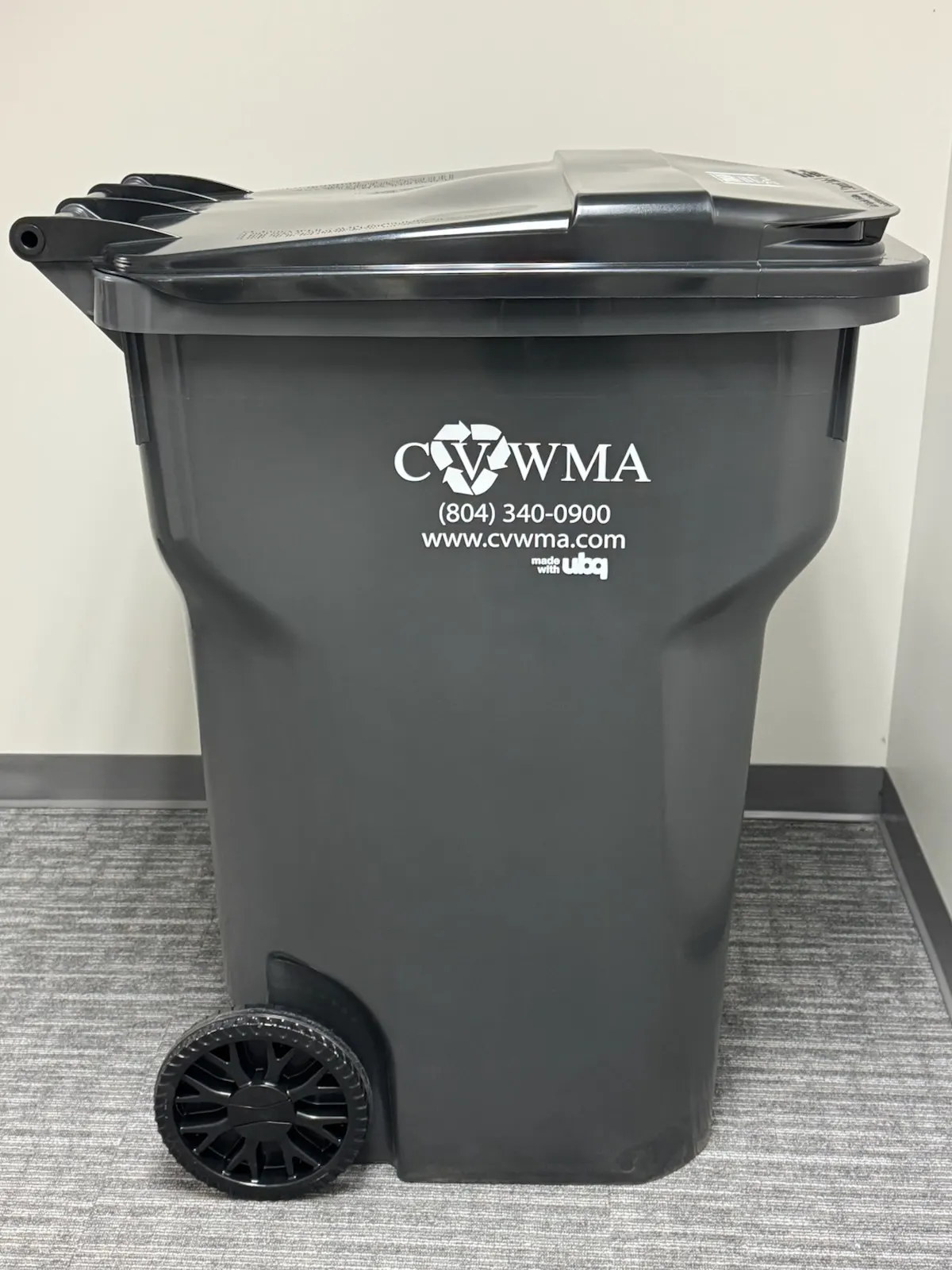
The new carts will be delivered to residents and CVWMA customers across Central Virginia for weekly garbage collection. As the first state to adopt trash carts made this way, “Virginia is setting the pace” on future innovation, Bigio said in a statement.
Torrence Robinson, deputy director of the Richmond Department of Public Works, said the partnership aligns with the city’s plans to achieve net zero greenhouse gas emissions through sustainability efforts.
The partnership helps Richmond and the surrounding area “reduce landfill dependency, lower emissions, and rethink how we manage waste in our communities,” he said in a statement.
UBQ Materials had previously partnered with CVWMA to roll out similar carts back in 2019.
Cascade Engineering, which produced the line of trash carts, said using UBQ material worked well and could scale for other products around the U.S., said CEO Christine Keller in a statement. Cascade has previously used PCR in its products in an effort to move away from using virgin resin.
In the meantime, UBQ Materials is considering where to build its U.S.-based plants in an effort to produce a steady stream of material for such partnerships. The company already has a facility in the Netherlands that has the capacity to handle an estimated 104,600 metric tons of material per year.
It’s also “considering a few [U.S.] states for possible locations,” including Massachusetts. Bigio told Waste Dive in 2024 that Massachusetts could be an ideal location, given the region’s limited disposal capacity. At that time, the company was also looking to directly partner with waste service providers.
Yet the company declined to offer more details this week about the timeline for securing final sites or what other states might be in the running for facility locations.



